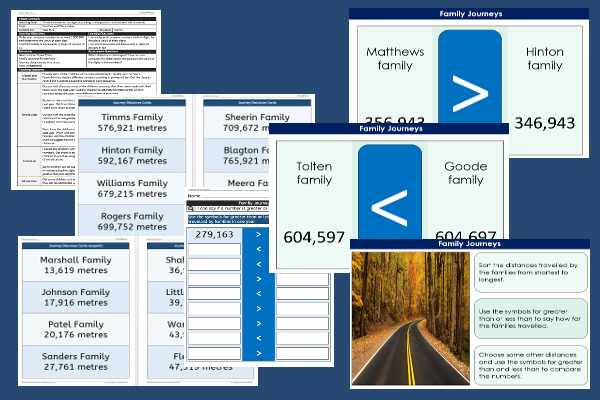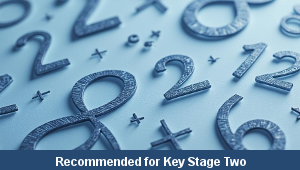Lesson Four – Family Journeys

This maths teaching pack for Key Stage Two gets the children to identify, explain and model how to order a selection of numbers to six digits according to the position and value of their numerical digits.
The class can describe and illustrate how to compare pairs of the ordered numbers to six digits using the correct symbols in equations for greater than or less than.
Download this teaching pack including a lesson plan, classroom activities and an interactive presentation to identify, explain and model how to order a selection of numbers to six digits according to the position and value of their numerical digits
Activities in this teaching pack include differentiated sets of cards to select and order numbers to six digits for core and extension ability levels and to five digits for support ability levels according to the position and value of their numerical digits and a template to record how to compare numbers using the symbols for greater than and less than.
The interactive presentation gets the children to explore how to order a selection of numbers to six digits according to the position and value of the numerals.
This lesson is part of a maths scheme of work to get the children to investigate, compare and record the place value of the numerals in a range of different six digit numbers according to their positions in each number. There are teaching activities for shared learning, differentiated worksheets to support independent learning and interactive presentations to introduce concepts and key skills.
-

Length Calculations
Practise using number calculations skills for addition, subtraction, division and multiplication when solving problems related to length measurements
-

Maths Calculations Assessment
Assess abilities in solving a range of different number problems for addition and subtraction when working with informal and formal written calculations
-

Determinant Lists
Explain and model how to make lists of objects used and found in different locations to match the correct determinants of a and an
-

English SPAG Assessment
Assess abilities in composing sentences for fiction and non-fiction using the correct spellings, punctuation marks and grammar vocabulary phrases
